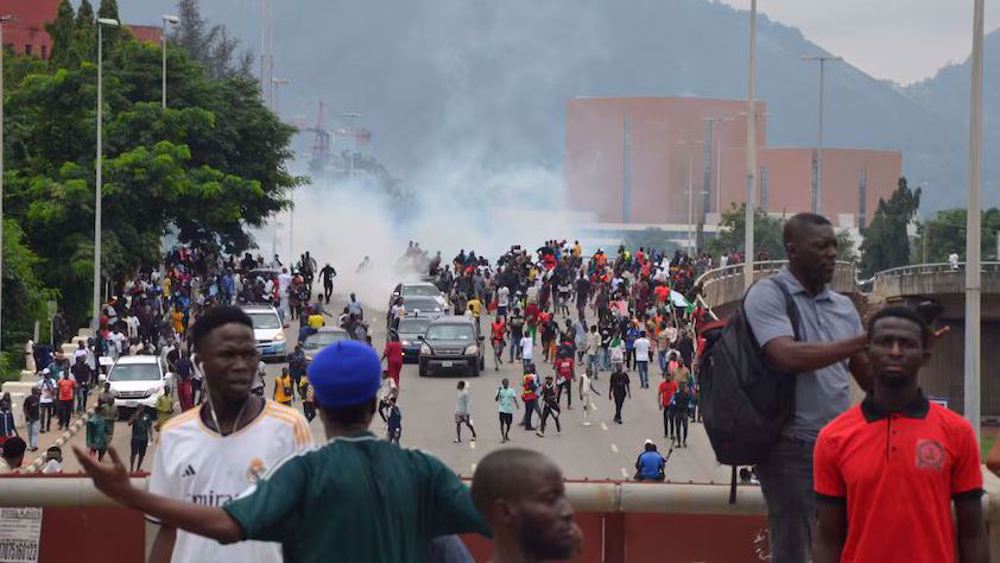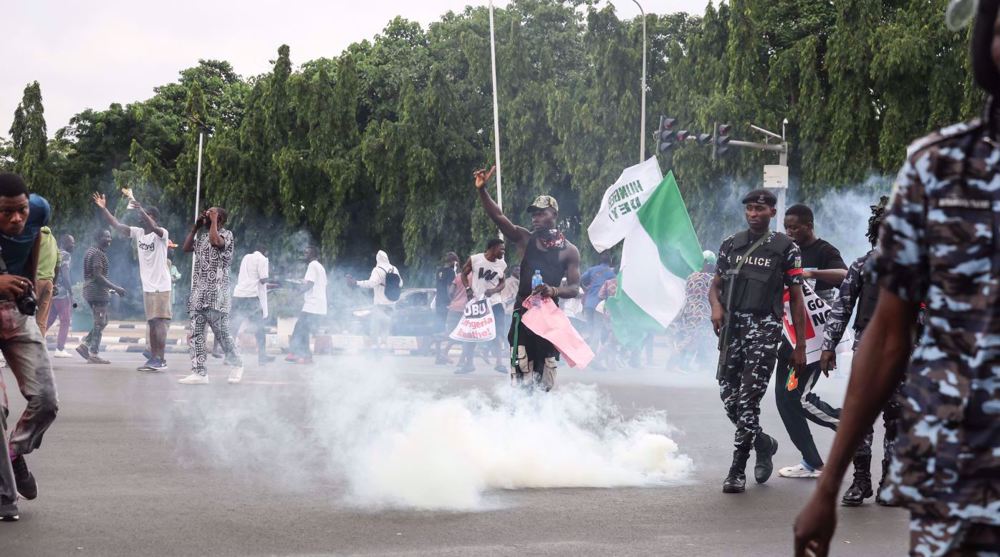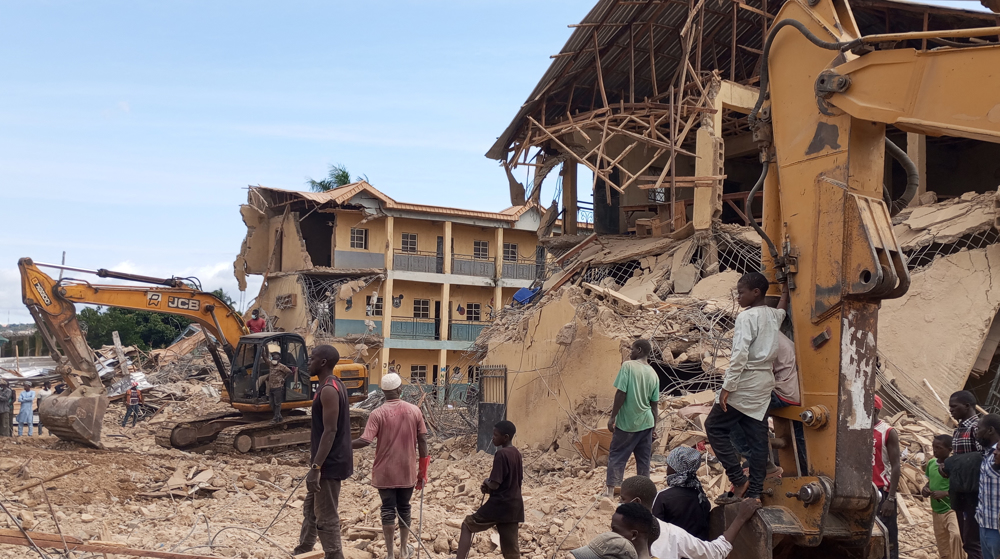Boko Haram bomber kills eight in fresh attack in Nigeria’s Maiduguri
A bomb attack has claimed the lives of at least eight people and wounded several others in Nigeria’s troubled northeast, officials say.
The attack was carried out by a suspected female member of the Boko Haram Takfiri terrorist group in the northeastern city of Maiduguri, the capital of Borno state, local Nigerian officials said on Monday.
The head of the Borno state emergency management agency, Ahmed Satomi, said that the female bomber had detonated her explosives at a mosque in the London Ciki area of Maiduguri at about 5:30 a.m. local time (0430 GMT).
"She killed eight people and injured 15 others. The mosque was being guarded by civilian JTF (joint task force) militia during prayers," media outlets quoted Satomi as saying.
"Unknown to them, the girl was being pursued from another part of town by residents who were suspicious of her movement at the time,” he added, noting, "When she approached the mosque, they demanded that she stop to be searched but she suddenly bolted into the mosque and set off her bombs."
Elsewhere in his remarks, Satomi pointed out that three other female bombers were located in Maiduguri at about the same time.
He went onto say that two were killed in Mammanti area as they tried to cross the ditch around the city perimeter. This is while another set off her explosives in the suburb of Simari.
It is the second time in a week that Boko Haram bombers have sought to cause carnage in Maiduguri.
Last Monday, at least 19 people were killed and nearly two dozen others injured when four women set off their bombs in the Molai Kolemari area of the city.
In recent weeks, a number of bomb attacks by suspected members of Boko Haram have taken place in the capital of Borno state and its environs.
Militants have regularly targeted mosques, markets, camps for those displaced by the conflict and other civilians across the troubled region.

In December 2016, Nigerian President Muhammadu Buhari, who came to power in 2015 with a pledge to eradicate Boko Haram, announced that the army had “crushed” the terror group by retaking its last key bastion, deep inside the thick Sambisa Forest in Borno.
The group has, however, resorted to sporadic shooting and bombing attacks in the northeast of the African country, spreading panic among local residents.
Boko Haram has claimed responsibility for a number of deadly terror attacks in Nigeria since the beginning of its militancy in 2009, which has so far claimed the lives of at least 20,000 people and made more than 2.7 million displaced.
The United Nations has warned that areas affected by the Boko Haram militancy face a humanitarian crisis.
Back in February 2016, four nations of the Lake Chad Basin -- Chad, Cameroon, Niger and Nigeria --launched a campaign, together with a contingent from Benin, to confront the threat from Boko Haram in the region.
Latest ballots polls show Harris, Trump tied as voting continues
UNRWA warns of humanitarian collapse in Gaza
'Hello my enemies': Lebanese journalist on Israeli threats and his resolve to continue
Outrage in France as MP proposes bill to ban criticism of Israel
VIDEO | The strategy of Hezbollah in war
Israeli military withdraws several brigades from southern Lebanon: Report
48-year-old Palestinian man serving 48 life terms completes 22 years in Israeli jails
From MKO to Tondar, how Germany became safe haven for anti-Iran terror groups















 This makes it easy to access the Press TV website
This makes it easy to access the Press TV website